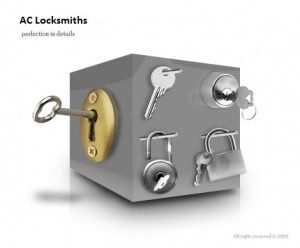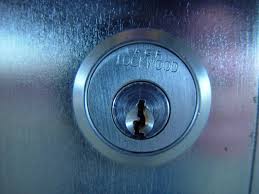Locks; spend to save
Locks; spend to save. A little spent now – in time & money- can save you a lot more of both in the future.
Do you have multi point locks? These are usually on UPVC doors or composite doors where you must lift the handle before locking. Increasingly, they are found on wooden doors as well.
Many of my call outs are to jobs where these have failed and the customer says to me something like; ‘I knew it was getting difficult, but then it just wouldn’t open.’ What happens then is I get the door open and must replace parts of the mechanism or the whole thing, depending on brand. The minimum part cost is £80, but it can go over £200. The sad thing is that in most cases, this cost is avoidable. It might be a case of re-aligning the door, servicing with a good oil or graphite, or clearing wasp cells (wooden doors).
As a rule of thumb your handles should be as easy to lift when the door is shut as they are when the door is closed. You can do the servicing yourself; All you need to do is firstly give the door a good clean all around the edges. Make sure all the holes in the frame are clear of debris, especially if you have a bolt that goes straight down. The holes for the bolt often get stones in which putt excess pressure on the mechanism.
Once everything is nice and clean, look at the front edge and lift the handle up and down a few times to see all the parts that move. You need to lubricate these moving parts twice a year. Best way to remember is do it when you change the clocks. Now push the handle down and hold it. The latch will have retracted and because it is wedge shaped, you will see a gap big enough for your lubricant straw. Push the straw in, squeeze for a few seconds and then work the handles up and down a few times to get the lubricant to all parts inside.
This is especially important if your home is near the sea as sea salt is very harsh. If you own a static caravan and the site management do not service doors for you, you will either need to make time to visit or invest in the services of someone who knows what they are doing.
If your mechanism is still difficult to operate when the door is closed, even after oiling, then you will need to think about door alignment. This is common in conservatories, and anywhere prone to ground movement. Some doors are easy to adjust, some are not, and old doors might need a hinge or two replacing. Look at your hinges. If all looks straight, then small adjustments might be needed. If you can see obvious buckling, then get the hinge sorted by a professional before it breaks the more expensive mechanism.
Even if you are a handy person yourself, finding exactly where the door needs adjusting can be daunting. I came across one I had not seen before in Docking the other day. It took a long time of trial and error to identify the part that was causing the problem. In this case the door itself had warped and while adjustments could be made, the customer had to accept that a part had to be removed completely to avoid having to buy a whole new door.
If after all this, your mechanism is still stiff, then there is something wrong with it. Floppy handles are another good indicator. You now have a choice. Get a professional locksmith in to change the mechanism while the door can be opened and he can get to everything easily or wait for it to go clunk when you have an important appointment and find he has to snap the cylinder, drill the handles or damage the door frame, all of which cost more to replace and fix.
These things happen always at the worst times. I remember at the height of the ambulance delays; an older customer in Holt was locked out because of lock failure. It was icy cold and slippery, as always, I asked if there was external power and so he started towards his garage which he had a key to and slipped over onto his back that had only recently been operated on.
The poor gentleman then had a three hour wait on cold ice while we waited for an ambulance. I couldn’t lift him myself for fear of doing more damage. The lock went at precisely the worst time possible and could have been avoided had the customers addressed the issue sooner. So next time you visit a vulnerable person, please do check their doors for them. Many think the issue is just that they are old.
One of my favourite things is seeing the look on someone’s face when they can suddenly easily use a door they have been struggling with for ages. But don’t call someone like me straight away. Just today, I returned to a lady in Walsingham who was having difficulty with her door that I had adjusted only recently. She showed me what she was doing, and I worked out she was just getting a little muddled with the operation. A quick lesson and write down of instructions and she was good to go again (no charge).
I know budgets are tight for many, but checking your doors now, might just save you a packet in the future – and checking on a vulnerable friend might save them more than just money.
Should you have any questions regarding the above or any other lock issues, please do not hesitate to contact me for a free consultation.


